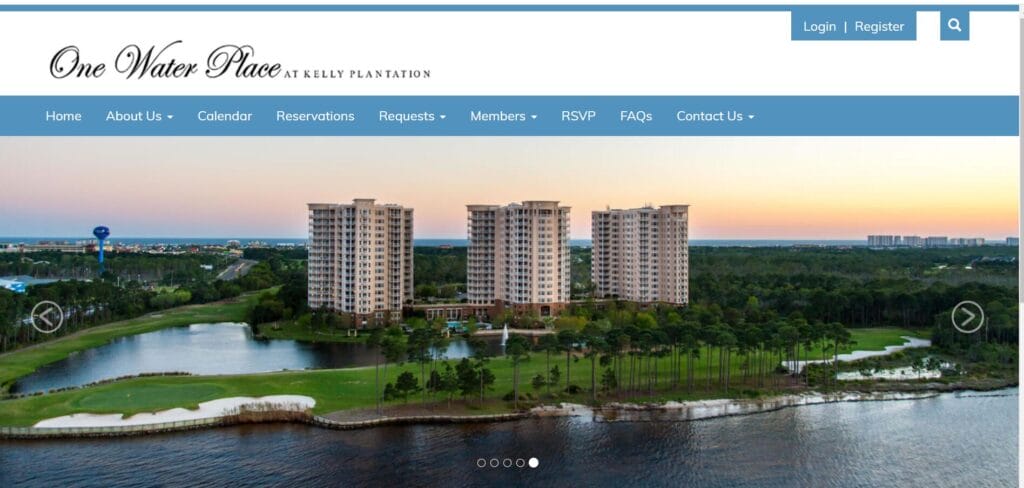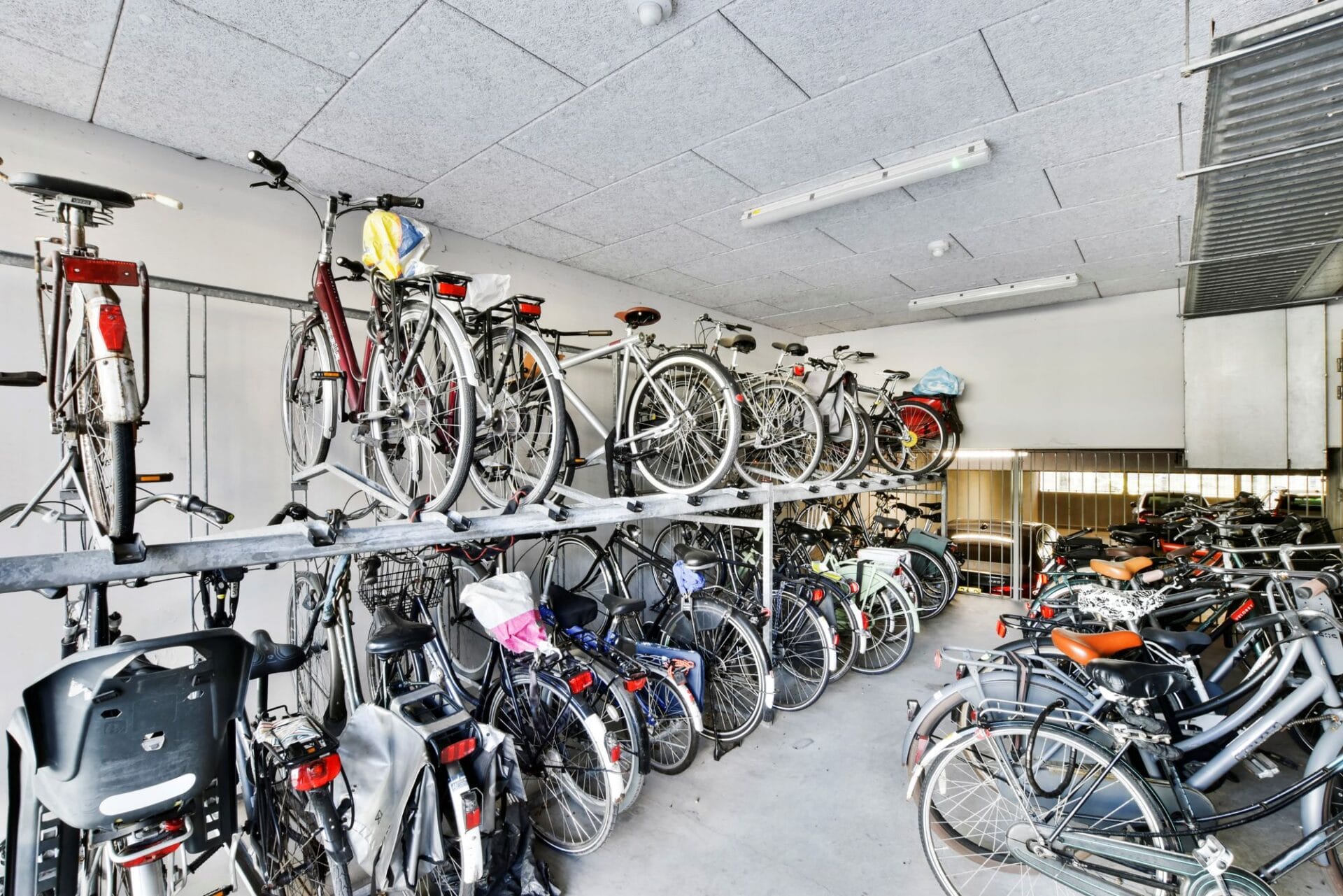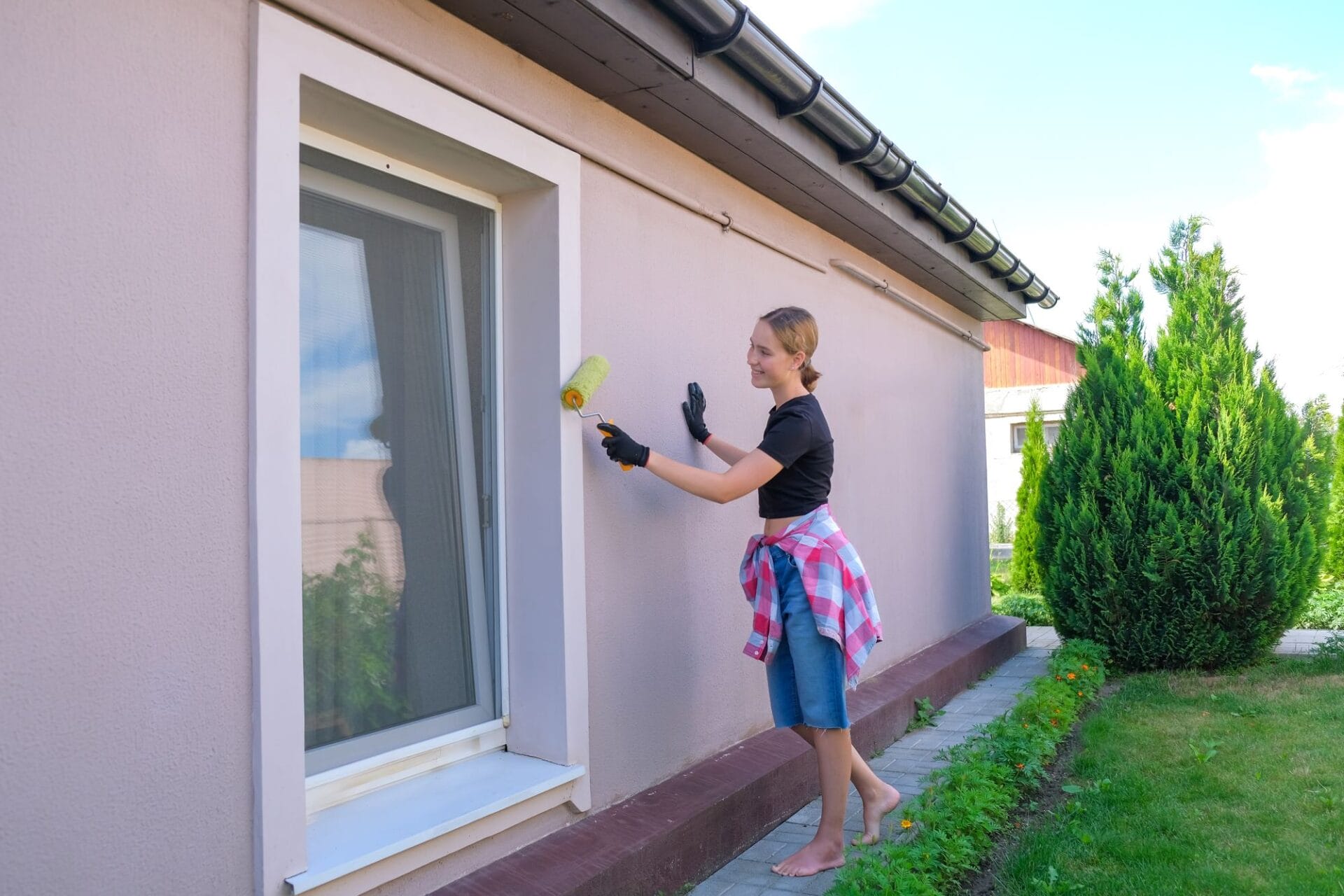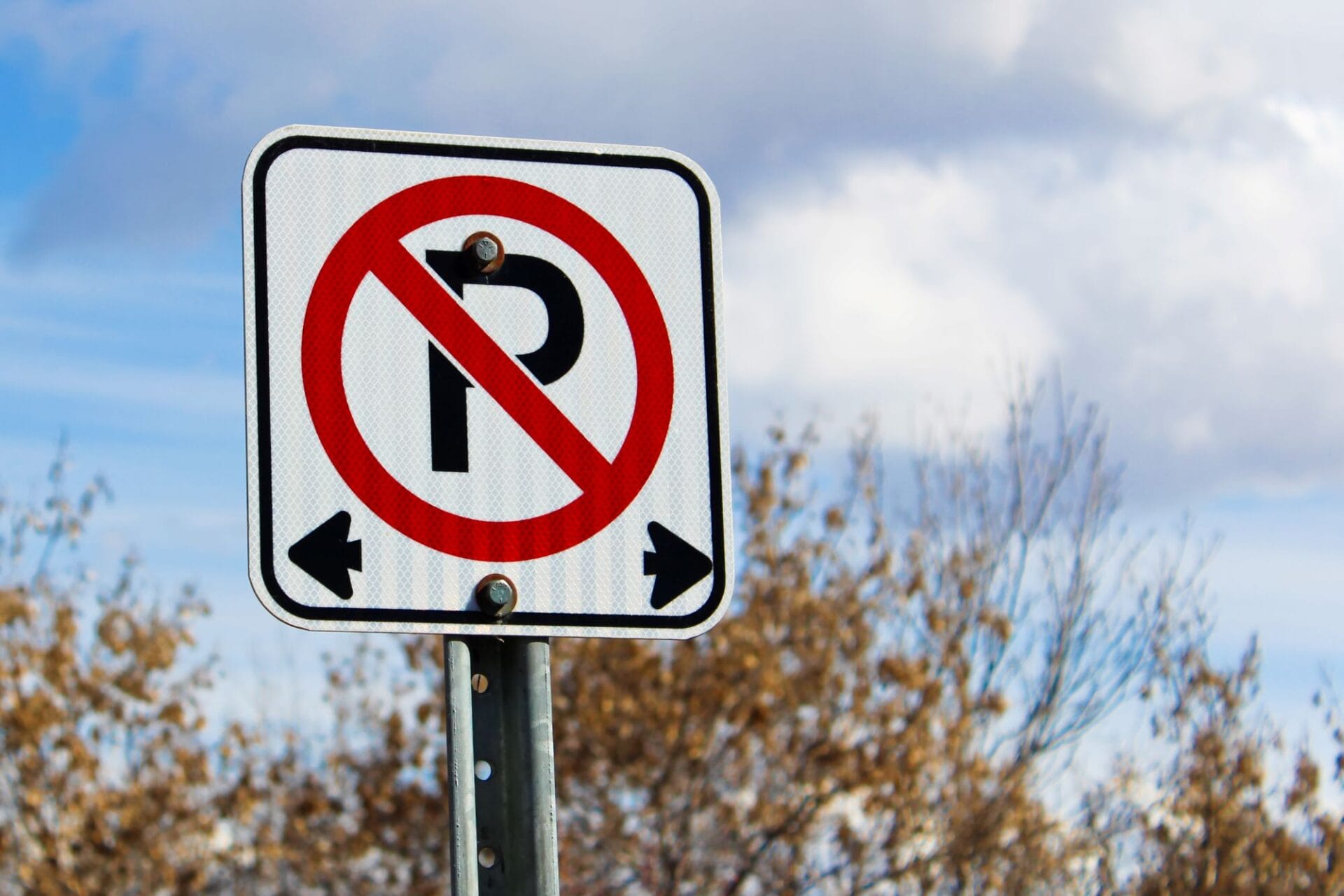Change is easier when your community is prepared for it. New legislation impacting condo and HOA communities has been passed in several U.S. states, affecting everything from electronic voting to accessible parking.
Check out the new laws that have come into effect in 2025.
You can also check out laws that came into effect in 2024 and previous years for each state.
California
Electronic voting permitted
It has finally happened! Owners living in California can elect directors and amend governing documents using electronic secret ballots as of January 1, 2025. However, elections related to assessments must still follow the traditional method of paper secret ballots, states AB 2159.
Owners retain the right to continue using traditional secret written paper ballots. HOAs must accommodate owner preferences, and must establish and communicate clear timelines for changes in voting preferences. Detailed instructions on how to vote electronically, as well as how to change their preferred method of voting, must be provided no later than 30 days before the opt-out deadline.
Owners who wish to switch from electronic to paper ballots or vice versa must do so no later than 90 days before the election.
This new voting option is expected to increase participation, improve voter turnout, and reduce workloads for staff.
HOAs are responsible for maintaining power and water service that come from common areas
SB 900 amends sections 4775, 5550, and 5610 of the Civil Code, relating to common interest developments.
Existing law, unless otherwise provided in the declaration of a common interest development, generally puts an association in charge of repairing, replacing, and maintaining the common area, unless the documents state otherwise.
This bill, effective January 1, 2025, holds associations responsible for repairs and replacements necessary to restore interrupted gas, heat, water, or electrical services that begin in the common area, even if the matter extends into another area, unless the utility service that failed is required to be maintained, repaired, or replaced by a public, private, or other utility service provider, or otherwise provided in the declaration of a common interest development.
The bill requires the board to commence the process of completing repairs within 14 days. If there are insufficient funds in the reserve to cover the cost of repairs, the bill authorizes an association to obtain competitive financing to commence repairs or replacements without a vote, and to levy an emergency assessment to repay the loan if certain conditions are met.
However, before obtaining that financing, the board shall pass a resolution containing written findings regarding the nature of the association’s expenses and how the association’s reserves do not cover the necessary costs.
If the board is unable to reach a quorum during the 14-day period, the bill would require a limited reduced quorum at the next duly noticed board meeting, only for the vote to commence the process of making repairs. The bill would also authorize directors to vote by electronic means for purposes of initiating repairs or replacements, pursuant to the bill’s provisions.
The bill also exempts an association from the above-described requirements and the general duty to repair, replace, and maintain the common area, if:
- the association is in an area affected by a state of disaster or emergency declared by the federal government, a state of emergency proclaimed by the Governor, or a local emergency proclaimed by a local governing body or official, and
- the disaster or emergency materially impacts the association’s ability to comply with the above-described requirements or duties
Finally, a new subpart (c) is added to Civil Code Section 5550, the reserve study requirement statute. The gas, water, and electrical service components must be included in the reserve study if the HOA is responsible for them.
Unfortunately, voting must still take place in person at a physical location. To date, according to CA Civil Code Sec 5100, electronic voting is not allowed for HOAs.
Florida
HOAs need a website and must post records
As of January 1, 2025, HB 1203 requires all HOAs that contain 100 parcels or more to maintain a website, and host digital copies of most of the association’s official records, including articles of incorporation, CC&Rs, bylaws, rules and current insurance policies.
If this law sounds familiar, you’re probably thinking of HB 1237. As of 2019, condo associations with 150 or more units (excluding timeshare units) were legally required to have a website that complied with specific obligations. Amendments were made in 2024, requiring condominiums with 25 or more units to have a website.

HOAs were not specifically mentioned in HB 1237, but Senate Bill 398 did state that “each association shall designate on its website” certain documents. HB 1203 makes it clear that HOAs need a website, just like condominium communities.
Mandatory reserve fund requirements
This news should not come as a surprise to any Florida condominium community. Senate Bill 4-D was signed into law in May of 2022 as a response to the Surfside condominium collapse.
In addition to other obligations, the bill requires condominiums to have a Structural Integrity Reserve Study conducted every 10 years, with the first study having been completed by December 31, 2024.
Associations cannot refuse to fund, or knowingly underfund the reserves for items required to be included in the Structural Integrity Reserve Study.
Mandatory inspections
SB 4-D also requires condominiums to complete Milestone Structural Inspections. Associations that are 3 or more stories high must have a Milestone Structural Inspection completed by December 31 of the year in which the building turns 30 years old. If a building is already more than 30 years old, it must conduct a milestone inspection before December 31, 2024. Milestone inspections must continue every 10 years thereafter.
For condominiums located within 3 miles of a coastline, a milestone inspection must occur when the building turns 25 years old, and must continue every 10 years thereafter.
Illinois
Accessible parking requirements
SB 2740 requires all condominiums with parking to implement policies for accessible parking access for owners with disabilities. The legislation goes into effect on January 1, 2025.
Policies must be adopted by the board no later than April 1, 2025. The policies must include:
- the procedure for submitting a request for an accessible parking space; and
- the time in which the board may review a request, which may not be more than 45 days from the date the request was submitted
Prioritization for disabled owners
In cases where accessible parking spaces are common elements or leased by the association, the policy must give disabled owners priority over non-disabled owners for the use of these spaces.
If a non-disabled owner is using an accessible space, they must relinquish it when a disabled owner’s request is approved.
For accessible spaces that are deeded or limited common elements, disabled owners can request to exchange their standard parking space for an accessible one.
For new or converted condominiums, all accessible parking spaces must remain common elements.
Michigan
HOAs cannot ban solar panels
The Michigan legislature recently enacted the Homeowners’ Energy Policy Act, 2024 PA 68, which imposes new requirements on Michigan HOAs with respect to installing solar panels and other green initiatives.
As of March 2025, any provisions that prohibit, or have the effect of prohibiting the installation of a solar energy system, are considered invalid and unenforceable. However, HOAs can still deny applications under certain circumstances.
Associations must also adopt a solar energy policy and follow certain steps when requests to install solar energy systems are submitted by owners. If an HOA fails to adopt a policy within 1 year after the Act comes into effect, or respond to a member’s request to install the solar energy system within 30 days after receipt of a written application, a member may proceed with the installation of the solar energy system.
Recent U.S. legislation
| Year | State | Law |
|---|---|---|
2024 |
Every state |
Boards must file a Beneficial Ownership Information (BOI) report The Corporate Transparency Act (CTA) requires condo and HOA boards to file a Beneficial Ownership Information (BOI) report to the U.S. Department of Treasury’s FinCEN. Efforts are still being made to have community associations exempt from this requirement. |
California |
Mandatory balcony inspections for condos Under SB 721, condominiums must have a qualified inspector perform a visual inspection of balconies by January 1, 2025, and every 6 years thereafter. SB 326 requires condominiums to have a qualified inspector perform a structural integrity inspection by January 1, 2025, and every 9 years thereafter. |
|
|
Online meetings permitted HOA board and member meetings can take place completely online. Before the adoption of AB 648, a physical location still had to be designated for an HOA meeting, with at least one board member in attendance, even if the meeting was taking place virtually. |
||
|
Owners can add an ADU and sell it as a second living space An HOA owner may add an Accessory Dwelling Unit to their property, and may be able to sell it to someone else if certain requirements are met. |
||
Florida |
Owners cannot be forced to park pickups in their garages House Bill 1203 is full of new laws aimed at providing more transparency and consistency to homeowners. One of the most significant laws allows HOA owners, tenants and guests to park pickup trucks in driveways. |
|
|
Fines cannot be issued without the option to attend a hearing Under HB 1203, a fine or suspension levied by the board cannot be issued unless the board has provided at least 14 days’ written notice of the owner’s right to a hearing. Hearings may be held by electronic means. |
||
|
No unreasonable bans on flags in backyards Also under HB 1203, unless prohibited by general law or local ordinance, HOAs cannot outright ban flags, boats, vegetable gardens, clothing lines or artificial turf if they are in an owner’s backyard and cannot be viewed from the front of the home, an adjacent parcel, an adjacent common area, or a community golf course. |
||
Hawaii |
Buyers may receive documents via email Senate Bill 2600 HD1 CD1 gives condo buyers the option to deliver certain condominium-related documents through email. |
|
|
Condo unit owners can invest in green energy initiatives A progressive initiative aims to give lower-income households access to solar energy, while also giving multi-family residential property owners the opportunity to invest in solar energy to offset energy costs. |
||
|
Condos are eligible to receive commercial property-assessed financing HB2801 HD1 SD1 CD1 makes it possible for condominiums to receive commercial property-assessed financing . This reduces the need for buildings to levy big special assessments. |
||
Illinois |
Charging station requirements The Illinois EV Car Charging Act states that single-family residences, or small multifamily residences built after January 1, 2024, must have at least one EV-capable parking space. Developments built before 2024 must allow owners and renters to install EV charging stations as long as there is a parking space for the vehicle. However, associations may decline requests that are not reasonable. |
|
New York |
Condos and co-ops must reduce emissions Local Law 97 , part of New York City’s Climate Mobilization Act, has set a series of emission reduction benchmarks that the city’s largest buildings must meet. The next benchmark is 2030. |
|
Texas |
POA members receive more clarity about fines House Bill 614 requires Texas POAs to adopt an enforcement policy regarding fines, and owners must receive a copy of the policy every year. The policy must be posted on the POA’s website. |
|
2023 |
California |
Residents can request to receive electronic communications Civil Code 4040 was amended at the beginning of 2023, making it mandatory for associations to deliver documents according to the preferred delivery method specified by the member. This includes email. |
Hawaii |
Changes to reserve study requirements Reserve studies must be reviewed by an “independent reserve study preparer.” They must also be reviewed and updated at least once every three years. Furthermore, studies using a “cash flow plan” (as defined in the law) must be created based on a minimum 30-year projection as opposed to a 20-year projection. |
|
Illinois |
Limit on fees for producing documents House Bill 5246 reduces the timeframe for condominiums in Illinois to provide certain disclosures under Section 22.1 of the Illinois Condominium Property Act (unit resales) from 30 to 10 business days. The bill also caps fees for the documents at $375 (with annual adjustments based on the “Consumer price index-u”) and allows for an additional $100 charge for rush service completed within 72 hours. |
|
Maryland |
Mandatory reserve studies All condominiums, HOAs, and housing cooperatives must undertake regular reserve studies of common area components. Communities that haven’t had a reserve study completed since October 1, 2018, must undertake one no later than October 1, 2023. The study must be updated every five years thereafter. |
|
Nevada |
HOAs must give members a way to pay assessments online Nevada passed legislation that required each HOA with 150 or more units to establish a website or portal, post association documents, and as of 2023, give owners a way to pay their assessments online . |
|
Pennsylvania |
Authorization of electronic voting Associations can host virtual meetings and take electronic votes without making changes to the bylaws, as long as the bylaws (or declaration) do not expressly prohibit this type of conduct. While providing more flexibility, these changes also require associations to confirm the identity of unit owners and make sure votes are accurately being sent and received. |
|
2022 |
Idaho |
Financial information must be provided to owners Idaho’s Homeowner’s Association Act requires HOAs to provide owners with a rundown of fees each year on or before January 1. It must also provide a copy of the association’s financial statement to all members every year. Members can ask for an up-to-date disclosure at any time, and must receive it within ten business days. |
Colorado |
Specific process for collecting unpaid assessments, fees, and fines Because of House Bill 22-1137, there are new things that HOAs can and cannot do when it comes to collecting late fees. For example, when addressing a delinquency, an HOA must first contact an owner by certified mail and post a copy of the notice on the unit owner’s property, contacting them by first-class mail, an email, or a text message. The HOA must keep records of its correspondence. |
|
Indiana |
HOA owners can petition for solar panel energy option Indiana passed House Bill 1196 which states that any owner who is a member of an HOA that has codified rules (adopted or amended after 2019), or previously ruled that solar installations may not be installed within the community, can petition other owners for approval to install the solar energy system. If approval exceeds 65% of members, or the expressed amount of signatures needed to ratify an amendment under the HOA’s existing rules, the owner can present the signatures and project to the board. |
|
California |
Approval from board needed before transferring funds Before Assembly Bill 1101, AB2912 stated that a board would need to provide written approval funds amounting to more than $10,000 or 5% of an association’s total combined reserve and operating account deposits, whichever is lower, needed to be transferred. To lessen confusion, AB 1101 changes the threshold to prohibit transfers of $5,000 or 5% of the estimated income in the annual operating budget for small associations (50 units or less) and $10,000 or 5% of the estimated income in the annual operating budget for large associations (51 units or more) without prior written approval from the board. |
|
2021 |
Florida |
Board meeting notices can be distributed electronically Senate Bill 630 has changed the process for providing members with board meetings notices, Associations can choose to adopt a procedure for providing notice electronically. |
Maryland |
HOAs may host meetings virtually Maryland communities can attain a quorum, participate in, and vote at meetings that are hosted electronically. Also enacted was House Bill 593 to clarify the procedure for holding additional meetings of condo and HOA owners where there is no quorum present at the initial owners’ meeting. |
|
Texas |
HOA information must be online Senate Bill 1588 mandates that HOAs with at least 60 lots, or any association that has a management company, must make the most current version of the association’s “dedicatory instruments” relating to the association or subdivision, and filed in the county deed records, available on a website. |
|
Utah |
Use of reserve funds during emergency Senate Bill 75 modified the Condo Act and Community Association Act to permit the use of reserve funds to cover budget shortfalls during a declared emergency if more than 10% of owners are behind on assessment payments as a result of the emergency. |
|
Washington |
Owners can request to receive communications electronically Notice to the association, the board, or owners by electronic transmission is effective only upon those who have consented, in writing, to receive electronically transmitted notices and have designated the address, location, or system to which such notices may be electronically transmitted. |
|
2020 |
Arizona |
Lien for assessment, collecting late fees Except for condos that have fewer than 50 units and do not have a third-party manager working for them, the association shall provide a statement of account in lieu of a periodic payment book to owners with the same frequency that assessments are provided for in the declaration. The statement of account must include the current account balance due, and the immediately preceding ledger history. The owner may opt to receive the statement electronically if that is an option provided by the association. The association may stop providing statements to an owner if collection activity begins by an attorney or collection agency that is not acting as the association’s managing agent. |
California |
Changes to elections Managers are prohibited from serving as inspector of elections; Senate Bill 323 prohibits a person who is currently under contract with the association from serving as inspector. |
|
Florida |
Fireworks on holidays Senate Bill 140 allows for the use of fireworks on New Year’s Eve, New Year’s Day and the Fourth of July. HOAs may still restrict or deny the use of fireworks, including on these designated holidays, if there is a properly approved and executed restriction found in a declaration of covenants. The bill does not apply to condominiums or cooperatives. |
|
New Jersey |
Electronic voting Electronic voting is permissible provided that: (i) all election regulations are still followed (ii) the bylaws permit electronic voting (iii) the electronic voting is administered by a neutral third-party |
|
2019 |
Florida |
Community associations need a website Condo associations with 150 or more units (excluding timeshare units) must have a website that complies with specific requirements. HOAs were not specifically mentioned in the law, it uses the word “association,” not “condo association.” |
Texas |
Protection of lemonade stands (applies to subdivision associations only) Section 202.020 of House Bill 234 prohibits a property owners association that administers a subdivision development from enforcing any restrictive covenant that would prevent a child under 18 from occasionally operating a lemonade stand (or a stand that sells other non-alcoholic beverages) on real property located in the subdivision development, provided the child has the permission of the owner of such real property. |
|
California |
Preventing fraud and embezzlement Assembly Bill 2192 states that individual board members or a board subcommittee that includes the treasurer must now review HOA financial information monthly instead of quarterly. Specifically added to the review are the association’s check register, monthly general ledger, and delinquent assessment receivable reports. |
|
2018 |
Florida |
Recording amendments to governing documents HOAs are required to record amendments to rules and regulations. Associations must note changes using underlines and strikethroughs. Amended documents must be recorded in the public records of the county in which the community is located, and copies of amendments to governing documents must be sent to all owners. |
South Carolina |
Resolving money disputes Money disputes of up to $7,500 can now be litigated in Magistrates Court, which normally does not require an attorney. These types of issues are not as costly for owners to litigate. |
|
Washington |
Electronic notices The Washington Common Interest Ownership Act (WUCIOA) states that regardless of if bylaws and declarations are silent on the matter of electronic notice, it is now authorized by WUCIOA. Associations can give electronic notice to members who “opt in.” Each owner is required to have consented in a record that they will accept notice by email or other electronic transmission. Consent may be revoked by the owner at any time upon sending another record. |
Conclusion
Bills are often created to resolve widespread problems impacting condominium and homeowners associations. Many of these new bills will either help to clarify rules or improve processes for owners and communities. If you have any questions about a law that is coming into effect in your city or state, please reach out to your lawyer.






















